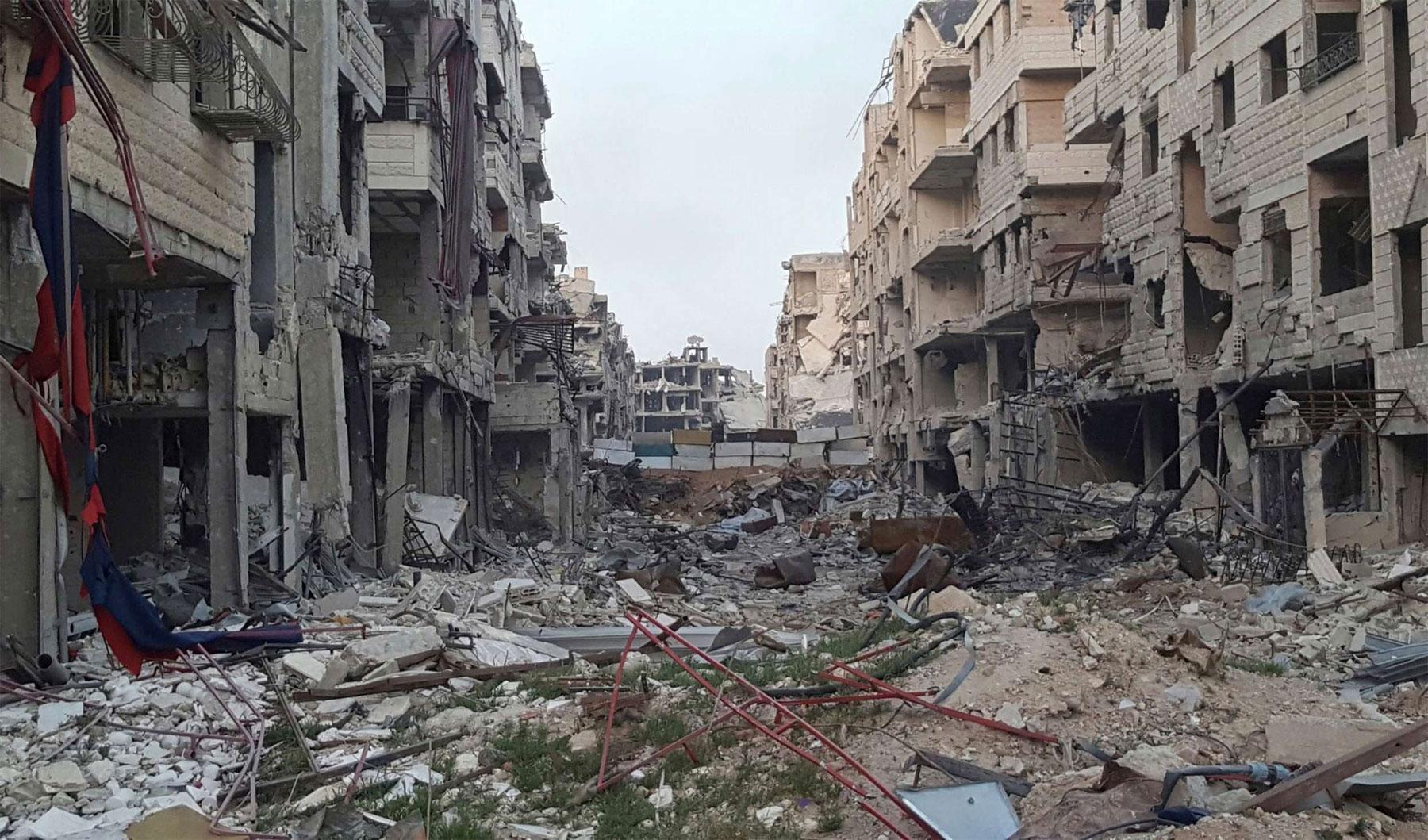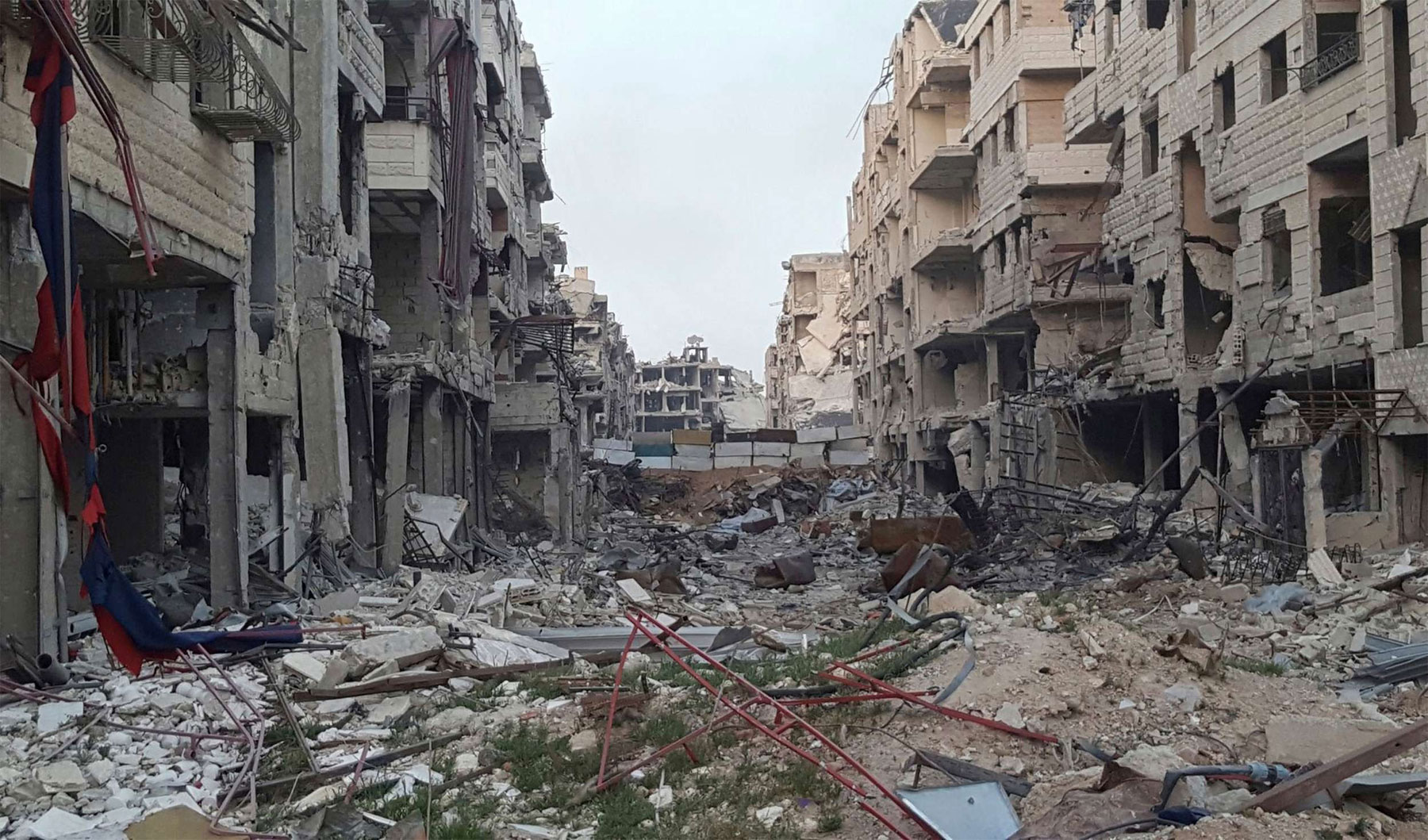Cracks Start to Show in Syria’s Unlikely Alliances
Despite the rhetoric, few expect a long-lasting rift between Russia and Iran.
Wednesday 30/05/2018
TUNIS — As the Syrian civil war enters what many hope are its final chapters, cracks have begun to emerge in the international alliance that reclaimed much of Syria for Bashar Assad and his Damascus regime.
Russia and Iran played critical roles in reaching this stage. After its decisive entry into the Syrian conflict in 2015, Moscow, along with Hezbollah plus a variety of Syrian and Iranian militias, turned the tide of the war, wresting Assad from near certain defeat and helping Damascus impose something like sovereignty over Syria’s anarchy.
With the Kremlin providing the weaponry and the airpower, the regime and its allies in Tehran, despite massive casualties, provided the critical ground power that brutally checked the ambitions of the rebel militias that had come perilously close to toppling Assad.
Though the successes of the alliance are beyond doubt, its future is less clear. Following a meeting May 17 in Russia, Russian President Vladimir Putin appeared keen to stress the importance of all military forces, excluding his own, withdrawing from Syria following any political settlement.
Iranian outrage followed, with Damascus at pains to pour oil on the waters Moscow had troubled. Iranian Foreign Ministry spokesman Bahram Qasimi, apparently speaking for his country’s forces and Hezbollah, on May 20, said: “No one can force Iran to do anything and Iran will remain in Syria as long as Syrian demand persists.”
Trying to defuse tensions between the regime’s two principal allies, Syria’s deputy foreign minister was quoted by Agence France-Presse as saying the departure of Iranian forces and Hezbollah was “not even on the agenda for discussion.”
Despite the rhetoric, few expect a long-lasting rift between Russia and Iran. Nevertheless, Putin’s comments, unlikely to have been chosen carelessly, focused attention on the very different war aims Moscow and Tehran have as well as their contrasting reasons for backing the Assad regime. Russia is seeking to project power into new arenas but Tehran’s motivations are less pragmatic.
“It is no secret that Russia does not want Iran and, by extension Hezbollah, to initiate a war with Israel that would threaten the stability of the Assad regime,” Nicholas Heras, Middle East security fellow at the Centre for a New American Security, said.
Russia has a long-standing relationship with the Israelis, whose defensiveness over Iran’s and Hezbollah’s presence in Syria brought the region to the brink of war just weeks ago.
“Russia has been very clear all along that it has a different relationship with Israel than Iran, and that it is not willing to sacrifice a long-term economic relationship with Israel at the altar of Iran’s Islamic revolution and strategic competition with Israel,” Heras said.
However, though removing both Shia Hezbollah and Iran from the Syrian theatre may appear to make short term political sense for Moscow, not least in that it may draw some of the religious venom from the Sunni rebel fangs, the Kremlin has equally sound economic reasons for wanting Iran to remain, at least for now.
“Obviously keeping Iran in the war helps put the West off balance,” former US Ambassador William Courtney, a senior fellow at the RAND Corporation, said by telephone. “Moscow seeks close ties with Iran in part because it will take Russian weapons that, unlike Syria, it can actually pay for.”
Courtney, turning to Russia’s long-term aspirations to remain a presence within the country, said: “There is also the cost of Syria’s reconstruction to consider, which is magnified by every bombing. The Russians don’t want the Syrian people to see them as a foreign power that helped destroy their country but then didn’t help rebuild it. This will require substantial Western aid but with fighting in Syria still under way and Iran’s security role on the ground, the West sees Syria as too dangerous for reconstruction.”
Beyond the short-term military and financial gains of their alliance stand incompatible war aims. Moscow hopes hostilities can be ended through a political process, even if that involves a federal Syria. While there are likely many reasons for that, the principal one is that Moscow hopes to establish air and naval bases in Syria.
Iran, however, “wants a protectorate,” Courtney said. “Tehran is aware of the risks in antagonising Israel as it works towards that but is committed to controlling a belt of power extending westward through Iraq and Syria to Hezbollah in Lebanon.”
Simon Speakman Cordall is a section editor with The Arab Weekly.
Copyright ©2018 The Arab Weekly







